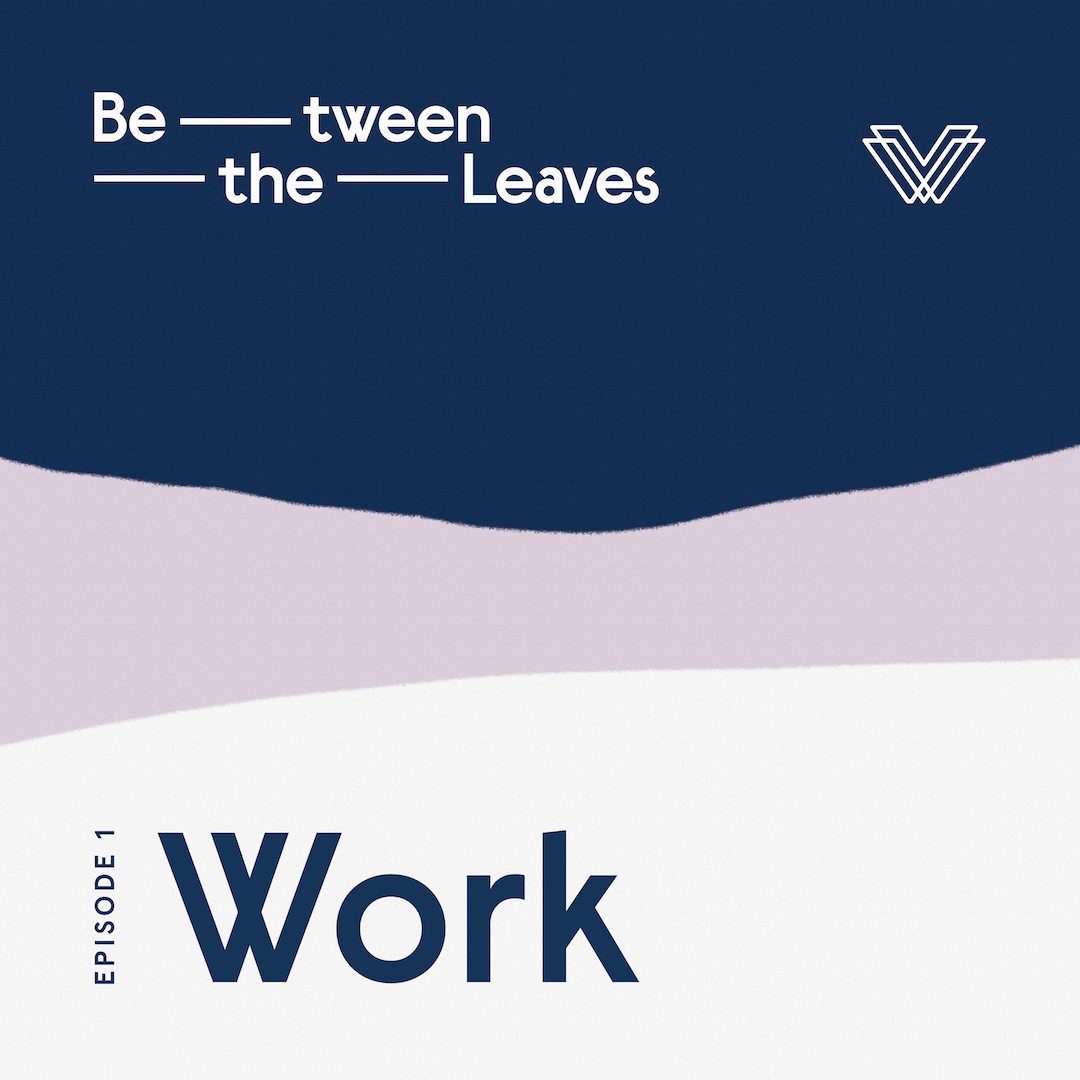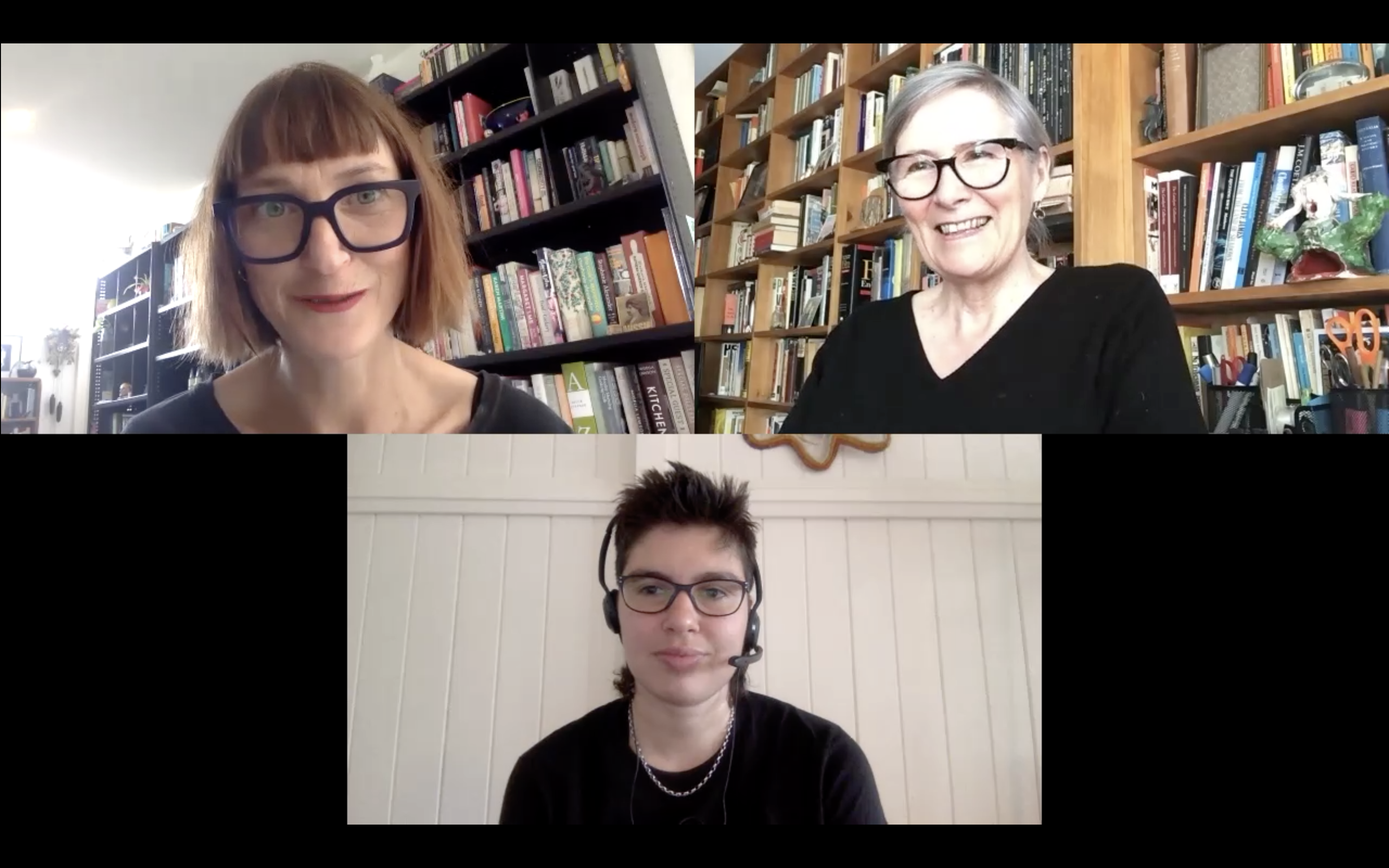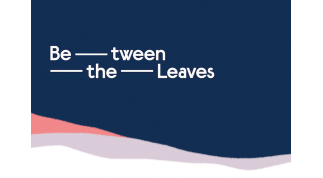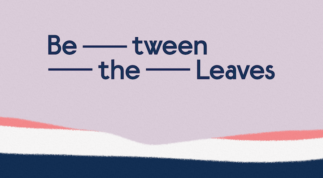 On Thursday 8 October 2020, we launched our new show, Between the Leaves. Hosted by award-winning Mununjali Yugambeh poet Ellen van Neerven; and Hermina Burns, poet and author of two poetry collections, Bite of a Bluebottle and Against Separation Creek (2020); Between the Leaves is timely collection of handpicked feminist poetry.
On Thursday 8 October 2020, we launched our new show, Between the Leaves. Hosted by award-winning Mununjali Yugambeh poet Ellen van Neerven; and Hermina Burns, poet and author of two poetry collections, Bite of a Bluebottle and Against Separation Creek (2020); Between the Leaves is timely collection of handpicked feminist poetry.
In each episode, Ellen and Hermina illuminate poems written by women and the gender diverse, as well as their own original works, moving through themes like love, race and feminism. Episodes will be released weekly from Thursday 8 October 2020.
To celebrate the release of episode one Work, Ellen and Hermina were interviewed by Chris Gordon, programming manager at Readings and newly appointed Victorian Women’s Trust board member. The trio discussed the making of this podcast, poetry that makes your heart hurt, and night-time reading rituals.
Watch the launch video and read the transcript below:
Transcript:
Chris Gordon:
Hello everybody. My name is Chris Gordon. I’m the programming manager for Readings and a very proud board member of the Victorian Women’s Trust. Before we get going on what I hope will be a lively discussion, I’d like to acknowledge that I’m speaking to you from the land of the Wurundjeri people, and I’d like to respectfully pay tribute to their wisdom of the land and the waterways. I’d like to acknowledge their elders past, present and emerging. And I would like us all to consider that today we are living on stolen ground, it is not our land, it’s land that’s not being seeded, and it is such a privilege and a pleasure to live in such a beautiful country.
Chris Gordon:
I’m very excited today to be here with two poets Hermina Burns, Ellen van Neerven, and I’d like to introduce you to them. Ellen is an award winning writer. Uh, she writes, they write fiction, poetry, plays, non-fiction and includes the very highly acclaimed Heat & Light, Comfort Food and Throat. Hermina Burns is also an Australian poet. She is the author of two volumes of poetry Against Separation Creek and Bite of a Bluebottle, which examines the experience of women’s lives in Australia. Together, they have created a podcast called Between the Leaves. What can listeners expect from such a podcast, from such poets, Hermina?
Hermina Burns:
Well, I think they can expect something which is answering the question, why would poetry read on, in a podcast be relevant? Why does it matter? Why is it important? And we try to answer those things.
Chris Gordon:
Ellen, what attracted you to work on such a podcast?
Ellen van Neerven:
I really like the idea of like gathering some of our favorite poems and poets together in this themed way. You know, this poetry podcast really celebrates the diversity of lived experience by women and the gender diverse and each episode has essential theme. So for example, um, you know, we have, uh, have an episode called Love and we have an episode called Work, and Hermina and I like really worked together to build these episodes together. So we’re talking, you know, there’s, there’s a conversation between the poems and, um, yeah, I really love the experience of reading these poems, but also talking about what they bring up. Um, so it was a really, really great kind of moment to sort of consolidate all of the, I, things that I, I myself had personally been thinking about, um, and all the poetry that I’ve sort of gathered over the years, as well as getting to know some of the poets that Hermina really hold in like greatest esteem. So yeah, it was really fun.
Chris Gordon:
I always think that we understand the way that we live and the people that we are and who we want to be through the art of words. I mean, when you’re thinking about poetry, do you believe that’s the attraction that people have to such an art form, that it is a way of making sense of who they are and why they are?
Hermina Burns:
I think poetry speaks to what’s deepest about being a human being, speaks to the deepest things in a setting. And it does it through a combination of rhythm, meaning and then the shape of the poem, and it’s memorable. And I think particularly this podcast I feel is very important because you’re hearing the creative acts of women, and men have been the more common people we read as poets or hear as poets, and they write from a position of thinking that’s the way the world is, but women and the gender diverse and minorities, the world is not quite like that. And so this podcast speaks and brings, speaks to and brings women’s voices in a creative act saying, well, this is some of the subjects that aren’t normally in poetry, these are the sums, some of the things we feel, this is part of the way we see our world. So it’s very much from women’s lived experience, women looking from inside themselves to outside.
Ellen van Neerven:
Mm-hmm (affirmative).
Chris Gordon:
Elle- Ellen, is that something that you agree with that this is a way of, uh, reading poetry is a reckoning of sorts if you like?
Ellen van Neerven:
Mm-hmm (affirmative). Yeah. Beautifully put Hermina. I think I couldn’t really say it better myself. I think, um, this, this, there’s something I think just innately political about women and gender diverse people like writing poetry, um, because it’s always pushing against that re- you know, that, uh, sort of cage reality as you put it Hermina, like that you explained how, you know, we’re living, you know, we don’t see our lives, um, reflected in, you know, some of the systems that we, we live in. So, um, yeah, the, the voice is always going to sort of like push against that and sort of in some ways comfort and, um, yeah, really sort of like empower those who read it ’cause they’ll be like, yeah, you know, I’ve, I’ve, I’ve experienced th- those feelings. I’ve experienced that before. And so it can be really, um, yeah, just almost life-changing sometimes when you, you find a poem that has, that speaks to your experience that you’ve never put in words before. Um, and yeah, that’s why I, I just love poetry and I love the possibility of poetry.
Chris Gordon:
Thank you so much. I can see why it just is such a powerful uh, reminder of how many people live in this world and, and the way that they make sense of it, or-
Hermina Burns:
Mm-hmm (affirmative).
Chris Gordon:
Uh, can you tell me what it was like creating these podcast series in the middle of a pandemic when you actually couldn’t be in the same room?
Ellen van Neerven:
Mm-hmm (affirmative). This probably applies to you a little bit more Hermina being in, in Melbourne with, with stage four restrictions. Um, do you want to talk to that a little bit?
Hermina Burns:
Well, the first part of the podcast was at least recorded in two professional studios, Ellen in Brisbane and me in South Melbourne at Squeaky Clean. And then I had to turn my closet, my walk-in wardrobe which is not super small, but it’s not big either, into a recording studio. So there was hilarious, a hilarious day, both frustrating and, and what should we call it kind of inventive-
Ellen van Neerven:
Mm-hmm (affirmative).
Hermina Burns:
… where I had to try and make certain that the magpie sounds of outer Rosanna where I live and the dog and the doorbell and all that kind of stuff didn’t intrude. And so we had duennas and feather pillows, and I had to bring, got rid of most of my clothes, but I had to bring back in woolly coats and a woolly dressing gown so that, you know, the sound wouldn’t bounce. So we’ve been quite inventive. It’s been very engaging doing this series.
Chris Gordon:
Hermina, it sounds like you are making cubby houses, you just-
Ellen van Neerven:
(laughs)
Chris Gordon:
… reminded me so much of my childhood when you would sort of sneak into corners. (laughs)
Hermina Burns:
And then to be able to read marvelous poems and talk to Ellen about them, it was terrific. And Ellen and I formed a com- we formed our relationship over Zoom because the early work we did together where we put the selections to each other and started talking about what we’d have and what we hadn’t, what we wouldn’t be able to have. Um, that was all done in lots and lots of Zoom meetings where I met Ellen’s dog and she met my dog and my granddaughter and (laughs) it’s been inventive and engaging and good.
Chris Gordon:
I find Zoom actually a very intimate sort of platform to use. Like there’s no other way that we could be in each other’s houses, you know-
Ellen van Neerven:
Mm-hmm (affirmative).
Hermina Burns:
Hmm.
Chris Gordon:
… at the moment. You know, you can see my study, I can see your study. Ellen I, I’m not sure where you are, but it looks very nice.
Ellen van Neerven:
(laughs)
Chris Gordon:
So-
Ellen van Neerven:
Yeah.
Chris Gordon:
… can you tell me a little, uh, did you choose poetry that hurt your heart, or did you choose poetry that had a message? Which, which one, were you thinking about the audience when you were choosing the poetry, or were you thinking about how you were affected by the poetry?
Hermina Burns:
Ellen, do you want to speak about that one first?
Ellen van Neerven:
Yeah, I think, I think sort of both, um, because yeah, of course you’re choosing poems that directly speak to you, but, but definitely also thinking about community as well and thinking about how, um, yeah, how these poems might… Yeah, like affect the reader like if they… I’m sorry, the listener, um, you know, working in this new world of like, you know, coming from being a writer and being, having the page and now to sort of have, you know, using your voice and people are like listening to the poems, which I think is, is a very intimate and can really perhaps engage people who wouldn’t think to pick up a poetry book, like just maybe just too busy or like haven’t really read much poetry, um, to be able to like listen to it is like another way of like, yeah, engaging with like all of this work that we’re still discovering. Um, and so it was definitely sort of thinking about, um, poems that would speak to, you know, speak of a very specific experience, but could be quite universal in their, um, um, their messages. Yeah.
Hermina Burns:
And if I can pick up on your idea of this new environment of the privilege of reading the poetry aloud.
Ellen van Neerven:
Hmm.
Hermina Burns:
That’s really where the whole podcast started-
Ellen van Neerven:
Mm-hmm (affirmative).
Hermina Burns:
… because Mary Crooks, CEO of the Victorian Women’s Trust launched my two volumes of poetry early in February this year.
Chris Gordon:
Can I add, at Readings.
Hermina Burns:
At Readings.
Chris Gordon:
(laughs)
Hermina Burns:
Yes, at Readings, and she heard the poetry read and on the evening said they should be recorded. And so it started really small, just this idea that we’d have a reading of my poetry, and then it morphed into something that was much more diverse and there were many women’s voices able to be heard, and we ended up with a co-presenter. So we’ve got a young black wo- woman, we’ve got an old white woman and we made it work. And I think I was so glad to work with Ellen because I have enormous respect for her poetry, and I knew some of her poetry before I met her. And so the conception of the podcast was not only about read poetry, but quality poetry. Mary said, “Please qual- quality poetry, inspiring, uplifting.” And we talked about whether it should be COVID centered and decided no let’s… As Ellen said before, let’s go for something which is broader, more universal, uh, that’s in a way more lasting than sort of as a very sort of specifically oriented, um, uh, podcast focus.
Chris Gordon:
I would like to ask you both quite a personal question, and I hope that you answer truthfully, uh, there’s no shame, there’s no wrong answer.
Ellen van Neerven:
Mm-hmm (affirmative).
Chris Gordon:
Hermina, when you get ready to go to sleep in the evening, do you read poetry or do you read a novel?
Hermina Burns:
I don’t do either.
Chris Gordon:
Mm-hmm (affirmative).
Hermina Burns:
So I do sometimes read poetry because for me reading poetry is a really important part of my life as of writing poetry. So I’m looking at models, I’m looking at how people do technical things, but I’m also looking at how some- somebody like the Chilean poet, Gabriela Mistral who won the first South American, um, Nobel Prize for literature. How she managed to find a way to write poems for children and about children or about women’s gynecol- gynecological issues or things that just don’t normally enter in what we think of as the world of serious poetry. And so I do read poetry sometimes, but I listen to the radio. Um, and I read books during the day, things like that. I read books-
Chris Gordon:
But, but in the evening you go to sleep with the sound of someone else’s voice.
Hermina Burns:
Yes.
Chris Gordon:
What about you Ellen?
Ellen van Neerven:
Yeah, I have poetry on my bedside table. I have, um, a beautiful Oodgeroo Noonuccal book and Judith Wright’s collected works, and I feel quite, quite confident knowing that they were like there. Um, and, but, you know, I think probably during this COVID time I have been less inclined to like read before I go to bed for some reason. I’m like on my phone.
Chris Gordon:
(laughs)
Ellen van Neerven:
Um, that’s the honest, that’s the honest answer.
Chris Gordon:
I love both of these answers so much. It makes me feel uh, not alone. (laughs)
Ellen van Neerven:
Mm-hmm (affirmative).
Hermina Burns:
Hmm.
Chris Gordon:
Can you tell me about the very first podcast that we could be listening to, tell me about, explain it to me.
Hermina Burns:
It’s about work. It’s about work-
Chris Gordon:
Working from the corner of your house or something a little, uh, with a wider scope? (laughs)
Hermina Burns:
Ellen, you want to talk about that?
Ellen van Neerven:
Yeah. We are, we are talking about work and, you know, talking about working like all its broad ranges and ideas. And um, so there’s some of, you know, whether it’s like domestic work, or like, uh, women and the gender diverse like working in traditionally like male orientated, um, industries, um, talking, like looking, you know, in the past, looking in the present, looking in the future. Um, it’s like got to, yeah, it was very broad when we think about work. Um, so I’ve got writers like, uh, Dr. Jeanne Leane, um, Maya Angelou, beautiful Maya Angelou, Rebecca Elson, um, and also poems by Hermina and I. Um, and I’m really excited to see what people think of it.
Hermina Burns:
And I was really excited by Ellen’s poem Vinegar in the work podcast, and I loved it as a poem, I knew it, but the first time I heard her read it to me was just an extraordinary experience.
Chris Gordon:
I’m very excited to hear the first podcast. As some of the listeners at home will be aware, the Victorian Women’s Trust is a feminist charity, and as such they will not be charging for episodes uh, or monetising this podcast in any way. It really is intended as a gift to all us people that thrive —
Ellen van Neerven:
Mm-hmm (affirmative).
Chris Gordon:
… thrive on words-
Ellen van Neerven:
Mm-hmm (affirmative).
Chris Gordon:
… and inspired by the work of others.
Ellen van Neerven:
Mm-hmm (affirmative).
Chris Gordon:
There’s lots of ways that you can support Between the Leaves, and there’s lots of ways that you can support the Victorian Women’s Trust in getting the word out and about. You can download an episode and have a listen today, you can subscribe to Between the Leaves and you can tell your friends to do the same. The more people that download, listen and subscribe, the better the chances are of having this podcast noticed by Apple Podcasts and the like, and that’s something that we all want. Uh, how else could people get involved, Hermina?
Hermina Burns:
Well, we’d really like you to gain the algo- algorithms so that we do get onto the Apple Podcasts. And we think that poetry and these voices of women deserve to get heard all over the place. And so we’d like you to give the poems or the podcast duration, and if you’ve got time to write a review on your, about your, on your favorite podcast- podcasting pla- platform. So it’s a great way listeners can help us grow our audience for poetry and for women and the gender diverse poets, and to have even more people listening to feminist and poetry from the edge as I like to think of it.
Ellen van Neerven:
Mm-hmm (affirmative).
Hermina Burns:
Mm-hmm (affirmative).
Ellen van Neerven:
Yeah. I hope, I hope it’s a podcast that will help connect people, like tell your friends about it, host a listening party, talk about it with your book club, um, post it on social media using the hashtag #BetweentheLeavespod. Every listen helps us compete with podcasts that have a very much larger marketing budget and ensures that the podcast is heard by people who need it most.
Chris Gordon:
I like the idea of listening to this podcast when I am out amongst some trees where the grass-
Ellen van Neerven:
Hmm.
Chris Gordon:
… very, very green and that I could just almost meditate to the sound of women’s voices.
Ellen van Neerven:
Yes.
Chris Gordon:
The sound of women’s history, and certainly perhaps most importantly, the sound of women’s future. To you both thank you so much for creating and expanding on a beautiful art form. I’m so, so grateful to you. I know that Readings is as well. I know the Victorian Women’s Trust applauds you, and I imagine that your podcast is going to be the podcast that everyone is talking about. Everyone. Thank you so, so much.
Ellen van Neerven:
Thanks so much.
Hermina Burns:
Thank you, Chris. Thanks Ellen.



